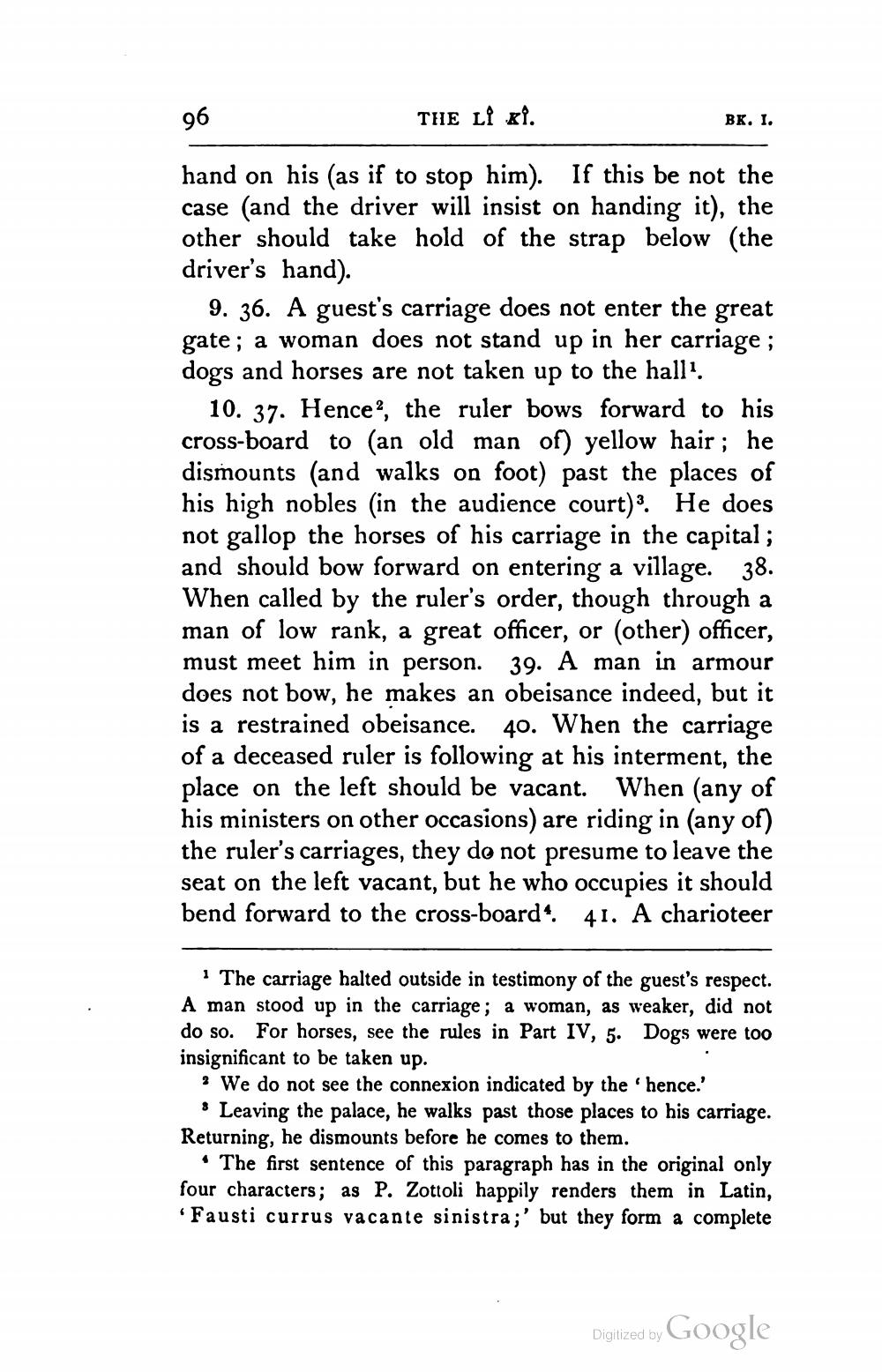________________
96
THE LÎ xi.
BK. I.
hand on his (as if to stop him). If this be not the case (and the driver will insist on handing it), the other should take hold of the strap below (the driver's hand).
9. 36. A guest's carriage does not enter the great gate; a woman does not stand up in her carriage; dogs and horses are not taken up to the halli.
10. 37. Hence, the ruler bows forward to his cross-board to an old man of) yellow hair ; he dismounts (and walks on foot) past the places of his high nobles in the audience court). He does not gallop the horses of his carriage in the capital; and should bow forward on entering a village. 38. When called by the ruler's order, though through a man of low rank, a great officer, or (other) officer, must meet him in person. 39. A man in armour does not bow, he makes an obeisance indeed, but it is a restrained obeisance. 40. When the carriage of a deceased ruler is following at his interment, the place on the left should be vacant. When (any of his ministers on other occasions) are riding in (any of) the ruler's carriages, they do not presume to leave the seat on the left vacant, but he who occupies it should bend forward to the cross-board”. 41. A charioteer
The carriage halted outside in testimony of the guest's respect. A man stood up in the carriage; a woman, as weaker, did not do so. For horses, see the rules in Part IV, 5. Dogs were too insignificant to be taken up. ? We do not see the connexion indicated by the 'hence.'
Leaving the palace, he walks past those places to his carriage. Returning, he dismounts before he comes to them.
• The first sentence of this paragraph has in the original only four characters; as P. Zottoli happily renders them in Latin, Fausti currus vacante sinistra;' but they form a complete
Digitized by Google




